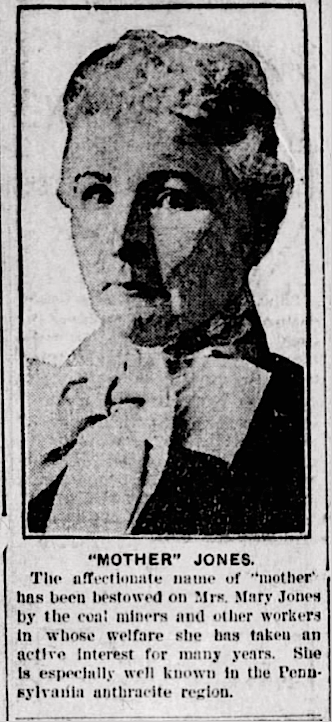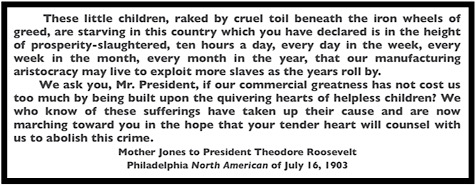 —————
—————
Hellraisers Journal – Sunday September 4, 1904
Mother Jones Describes the March of the Mill Children of July 1903
From The Co-operator of September 1904:
The March of the Children.
Lena Morrow Lewis, in The Socialist, Seattle, Washington, June 19th, 1904. From notes by Mother Jones.
PHILADELPHIA is famed far and wide as the ” City of Brotherly Love.” Churches abound everywhere, and her people look with holy awe upon the sins and vices of their sister city on Long Island Sound. And an unsuspecting and unobserving public has been quite ready to accept without question all that the City of Brotherly Love has claimed for herself.
It has remained for the wicked labor agitator to ferret out and unearth the criminal conditions that exist in this quiet, peaceful church- going city of Philadelphia, and it is only in a Socialist paper that these facts are permitted to see the light of day.
The writer is indebted to “Mother” Jones for the items contained therein.
Last summer the textile workers of Philadelphia, 125,000 men, women and children, went on a strike. They demanded shorter hours, an increase of wages and better sanitary conditions. Filthy closets and a defective sewerage system produced a very unwholesome atmosphere in which to work. Meanwhile the rest of the world wagged merrily on, and no one seemed to know or care anything about the strike, except a few labor cranks and Socialists and the owners whose profits were being affected. Not a daily newspaper mentioned the cause of the strike, nor the fact that among the strikers were a large number of children. During this time “Mother” Jones “happened” to drop into town and, as is her custom, she began to stir up matters. The public should be forced to know what these people were striking for. But strikes were such common affairs and it would require drastic measures to arouse an indifferent public.
At last she hit upon a plan. She would marshal all the children between the ages of ten and fourteen and take them on a thirty-mile march and they were to stop at every town within that radius and tell the people the story of their wrongs. Many of these children had worked in the factory since they were seven years of age and had never been inside a school room. When they were gone about forty miles they decided to go over to Oyster Bay and present their case to President Roosevelt. There was some risk connected with a project of this kind. If any of the children had sickened or died on the way, that fact would have been heralded all over the country, and “Mother” Jones proclaimed a murderer. The mills could maim and disfigure and kill scores of children annually and no mention be made of the fact. However, “Mother” Jones felt that they could afford to take chances and proceeded with the children.
As they journeyed from town to town, members of the working class provided them with food and shelter.
The children marched thru the streets of the towns, held meetings and, thru their leaders, told the story of their wrongs. Every child was keyed up to the highest pitch of enthusiasm. Every step northward was taking them farther away from Philadelphia. Some of their fathers had voted for President Roosevelt; in their eyes he was the greatest man in the United States and so they went hopefully and merrily on. When they reached Bristol the leader sent a request on behalf of the children for a permit to hold a street meeting and, when it was learned that an army of children was coming into town, a squad of policemen armed with guns were ordered to stand guard on the bridge to protect the city against the children.

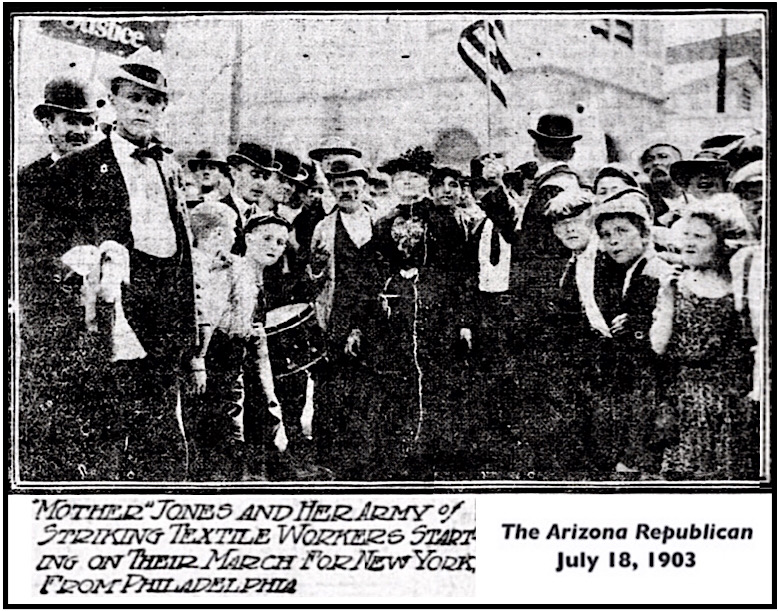
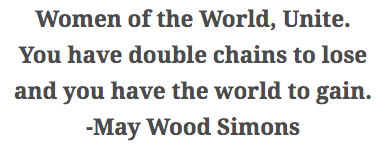 ———-
———-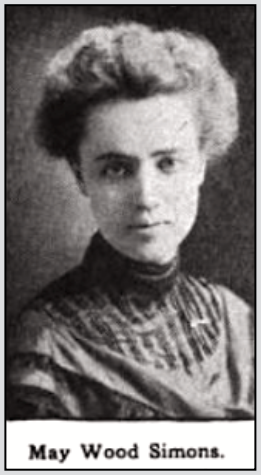
 ———-
———-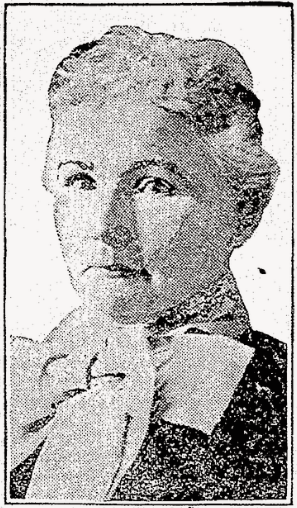

 ———-
———-